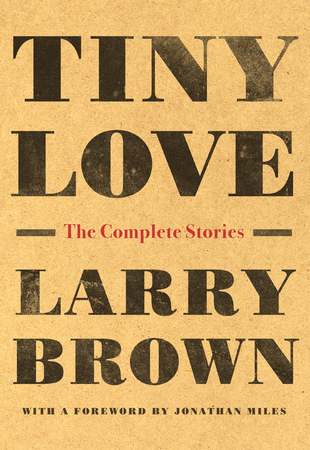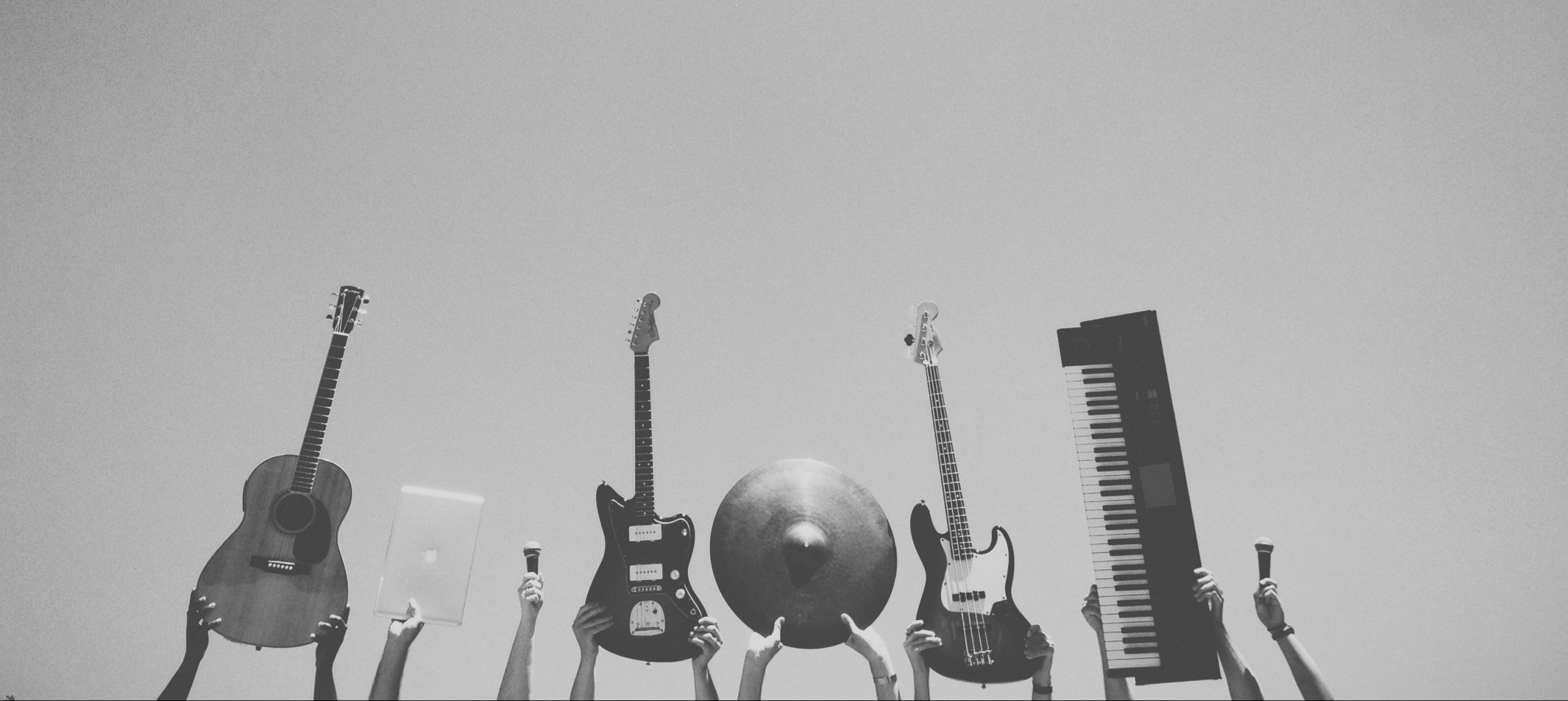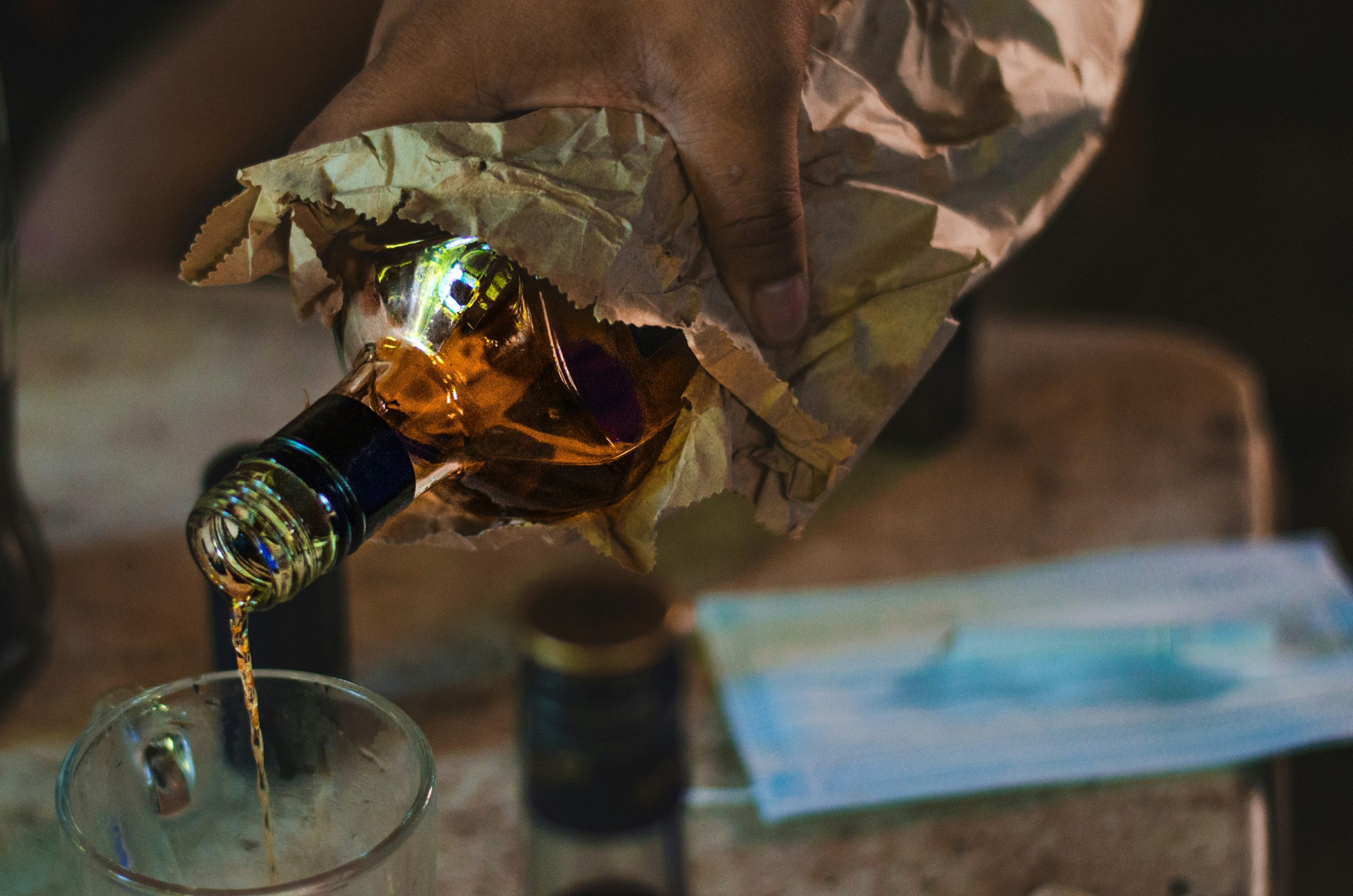Books & Culture
The Stories That Helped Me Embrace the Rural South
I didn't think writers came from places like my hometown—and then I found Larry Brown

My best friend growing up was my aunt Jessica. She was only eight years older, so we behaved like siblings—spending weekends together, playing rented video games or watching video cassettes, shooting basketball in the yard and, once Jessica could drive, riding around with no real destination or purpose in mind.
It was not her first car, but the one I remember most vividly was a four-door, champagne colored Honda Accord with creamy leather seats and a tinted sunroof I’d stand and wedge my head through while Jessica steered us along unlined country roads. Sometimes we stopped at a gas station that had arcade cabinets in back where Jessica’s friends hung out and smoked cigarettes they weren’t old enough to buy. I feared the older boys, loved the older girls. Other times we just cruised and listened to rap music.
Jessica loved rap music—and I loved what Jessica loved because she was so cool. She subscribed to the Columbia House Record Club, cussed, played football with boys, her three-point shot was true, she could beat video games I could not. She introduced me to Snoop Dogg, Tupac, Salt-N-Pepa, Notorious B.I.G., TLC, Arrested Development. Music that in no way resembled our rural Alabama existence, which was isolated both geographically and culturally. This was before the internet, before the South was glamorized in glossy magazines, before hip people in Brooklyn dressed like my father, a coal miner, and the other men buying snack cakes and soft drinks at our local gas station on weekday mornings.
I saw little worth in the rural South and, as a result, in myself. I only wanted out.
I remember my parents once asking what I wanted to be when I grew up. I couldn’t have been older than 10 or 11 at the time. My mother often took me to the public library and bought me mass-market paperbacks at the Walmart. My father brought home The Birmingham News and I cut out advertisements for films then taped them on my bedroom wall. I told my parents I wanted to be a writer. That’s not a job, they said. How could I argue? No one I knew wrote much more than their name on a check. The music I listened to, the books I read, the movies I watched, none of them sprung from the clay beneath my feet. Back then, I saw little worth in the rural South and, as a result, in myself. I only wanted out. Since I couldn’t leave, the next best thing was singing along with rap music, strapped in the backseat of my aunt’s car with an ice-cold Mountain Dew gripped between my pale legs, imagining a future entirely unlike my present.
Jessica, as always, was steps ahead of me. She’d begun reading and writing poetry. After high school she attended college in a city near the Gulf Coast. She sent missives back to me. Perhaps the most important was a novel by Larry Brown. It was called Dirty Work and much of its truth sailed over my head. But I loved this book in an elemental way. Partly because Jessica had given it to me, but also because it struck a nerve. Here was a story set in a rural South I recognized, written by a man whose slight grin and neat mustache resembled my father’s. According to my limited understanding of art and who made it, Dirty Work shouldn’t have existed. Maybe that’s why I embraced it so.
Eventually Jessica went to graduate school in North Carolina, studied creative writing and published her verse in a book. She got out. So imagine my surprise when I discovered all the poems she wrote were about our people, our home. I did not immediately take up the pen as well. This isn’t that kind of origin story. I wandered while Jessica counseled and watched. By the time I came back to Larry Brown’s books, he’d died of a heart attack at only 53 years old.
Since then Larry has been mythologized to the point his writing gets obscured by tall tales about the man behind it. I hope this will change in November when Algonquin publishes Tiny Love, a complete retrospective including every story from Larry’s collections Facing the Music and Big Bad Love, as well as several stories never published in book form.
Reading Tiny Love reminded me why Larry’s work mattered to a young man who, for a time, loathed the place he came from and resisted its influence. When people talk about Larry’s writing, they often use words like honest, gritty, dark, eccentric, heartbreaking, doomed. Words, I think, intended to encapsulate the idea that Larry Brown was an authentic Southern writer—whatever that means. There are many different Souths and the term “authenticity” is little more than a Rorschach test for whoever uses it.
My admiration for Larry has little to do with the authenticity of his take on the region I call home. I appreciate his specificity, how lovingly and unflinchingly he writes about the lives of particular rural Southerners. Take the new book’s title story, in which a man named Tiny works the line at a factory, operating a gigantic press that stamps out metal pieces for kitchen stoves. Tiny must watch where he places his hands or else lose them to the machine. But he has a lot on his mind, namely his wife’s drinking problem. Every evening on the way home from work, Tiny buys a half-pint of liquor for her. The Four Roses and Heaven Hill and Old Grand-Dad are killing his wife, and Tiny knows it. But she needs liquor and, in turn, she needs him. Brown writes, “[Tiny’d] hold her close and think, Lord, I love her, and then she’d ask for another drink and Tiny would get up and fix it.”
Larry understood that work is not a literary device, but something flesh and blood people do in order to survive.
Larry understood that work is not a literary device, but something flesh and blood people do in order to survive. He knew love was no clear-cut thing. Economic opportunity—or the lack of it—and heartache is the water in which his characters swim because that is what he often encountered in rural Mississippi.
In the foreword to Tiny Love, Jonathan Miles writes “The models for [Larry’s] characters were individuals, not types: the people he’d grown up with, that he’d worked beside, that he’d get to talking to at bars, that he’d rescued from crushed vehicles, that he’d listened to trading stories and gossip at the little country store he ran for a while in the eighties, that he’d see walking shoeless on the roadside with no easy destination he could imagine for them.” In other words, Larry wrote about the people he lived alongside—and he did so with a tremendous amount of responsibility and empathy.
As I became older, this aspect of Larry’s fiction gripped me. I’d tried many ways to set myself apart from my neighbors and family. I begged for a seafoam-green electric guitar I never learned to play beyond plucking a few notes of “Smoke on the Water.” At a beauty parlor I sat while my hair was frosted to resemble a character’s on a popular TV show. I convinced my father to give me money to buy expensive clothes that did not fit me like the slim models in a store window at the Birmingham mall. I talked shit on rednecks, who were, in my estimation, almost everyone I encountered on a daily basis. In Larry’s stories there was no stereotyping or sentimentalizing. Compassion was unlimited. I found nuance surrounding rural identity, class, shame. Where before I saw rednecks, I now saw individuals—human beings.
In “The Rich,” a story originally published in Facing the Music, we encounter a character struggling with class and shame. It begins, “Mr. Pellisher works at a travel agency, and he associates with the rich. Sometimes the rich stop by in the afternoon hours when the working citizens have fled the streets to punch their clocks… Mr. Pellisher keeps his punch clock carefully hidden behind stacks of travel folders, as if he’s on straight salary. As if he’s like the rich, free of the earthly shackles of timekeepers. He keeps a pot of coffee on hot for the rich, in case the rich deign to share a cup with him, even though Mr. Pellisher pays for the coffee himself.”
In Larry’s stories there was no stereotyping or sentimentalizing. Compassion was unlimited.
Larry worked many different jobs in his life. Of writing, he told the filmmaker Gary Hawkins, “I was just looking for a way to make some extra money. I was doing all these shit jobs, putting up chain-link fences for Sears, baggin’ groceries, running a country store. I thought, Ain’t there something better I could do?”
Turned out there was.
I never met Larry. But two summers ago a friend connected me with Shane Brown, Larry’s son. Shane and his brother Billy Ray run a dairy operation, which their father wrote about in a beautiful essay titled “Billy Ray’s Farm.” I was in Oxford, Mississippi, to discuss my novel at Square Books—the store that nurtured Larry and so many other writers from near and afar.
I met Shane in Yocona at the house where he grew up and his father died in 2004. Shane showed me The Cool Pad, a long and narrow room off the carport where his father wrote. Photographs of Larry and his friends were taped to the wall. Dust covered every surface—from an acoustic guitar to a pair of boots. Shane played me a message left on an old answering machine by the writer Harry Crews. Later, we got in Shane’s truck and drove around in “the gloam,” which, according to Jonathan Miles, is how Larry habitually described the day’s last hour. There was a cooler in back. While I fished for light beers, Shane pointed out places that had inspired his father’s writing. My head was on a swivel. After a while I gave up trying to take in everything. Larry’s characters often find escape with a bottle and an empty stretch of blacktop road. I leaned back, relaxed.
Eventually we arrived at Tula. Shane and I walked across a spillway his father had constructed one small trailer filled with dirt at a time to create a private fishpond. Larry wrote about this too. On the other side of the pond, tucked among tall pines and leafy oaks, stood the shack, Larry called it, meant to be his writing home away from home. He died before making much use of the place. A typewriter sat by the window, a rolodex on the desk. Shane told me I could take pictures, but I didn’t want a camera to intrude. I told myself to pay attention, though I doubted I’d ever write about this evening.
The twilight was noisy with crickets and frogs. Shane and I sat on a pier and shared another drink. Before full dark, we visited Larry’s grave. I knew he was buried at Tula and wondered how I’d feel upon seeing the site. I was not overcome with awe. This was my writing hero, but he was someone’s father, husband, son. A flesh and blood person like those in his stories. Looking around the property, I recalled a line from Larry’s essay “By the Pond,” which goes, “It’s one thing to have a life in a place, and to be happy in it is quite another.”
This was my writing hero, but he was someone’s father, husband, son. A flesh and blood person like those in his stories.
Back in Yocona, while the Brown grandchildren helped bottle fresh cow’s milk, Billy Ray grilled steaks and hot dogs and hunks of venison wrapped in bacon. We ate with our hands, drank cold beers. I stayed past midnight listening to Shane and Billy Ray tell stories about their father. Just like Larry’s writing, the brothers were generous and funny. I told them the greatest compliment I ever received was from a writer who knew their father and said he suspected Larry would’ve liked me too. The brothers agreed with this assessment. Had I not been so full of meat and beer, I might’ve floated on up to heaven right then.
I had a good buzz by the time I drove to my motel in Oxford—about ten miles distance. If you are not from a rural place, you may not understand the pleasure of puttering along an empty two-lane in such a gently inebriated state. I thought about calling my aunt Jessica, but it was late and she and I had grown apart. Another line of Larry’s returned to me: “You can’t pick where you’re born or raised. You take what you’re given, whether it’s the cornfields of the Midwest or the coal mines of West Virginia, and you make your fiction out of it. It’s all you have. And somehow, wherever you are, it always seems to be enough.”
If we are to believe the title of this new book, then the stories within are about love. Remember Tiny: “He believed in Social Security and he believed that he would live a long and healthy life and he believed that his job was a form of security as solid as anything anybody could ever hope for. Sometimes he longed to drive the forklifts. Sometimes he longed to be the foreman over the assembly line where fifty people put stoves together and drilled holes with drills and inserted screws with air-driven screwdrivers and sent them on down the line, because the press department was too loud for talk and almost too loud for thought, but Tiny had only two thoughts anyway and they were, Lord, I love her, Kentucky Tavern.”
Like Tiny, I grew up in a place where love gets shown in many different ways. My aunt passes along a certain book, my father asks if I saw last night’s Braves game, my mother tells me to pray that my sister does well on an exam. They say to love someone else you must first learn how to accept and love yourself. No other writer has helped me do that—and continues to—more than Larry Brown.
Before you go: Electric Literature is campaigning to reach 1,000 members by 2020, and you can help us meet that goal. Having 1,000 members would allow Electric Literature to always pay writers on time (without worrying about overdrafting our bank accounts), improve benefits for staff members, pay off credit card debt, and stop relying on Amazon affiliate links. Members also get store discounts and year-round submissions. If we are going to survive long-term, we need to think long-term. Please support the future of Electric Literature by joining as a member today!









